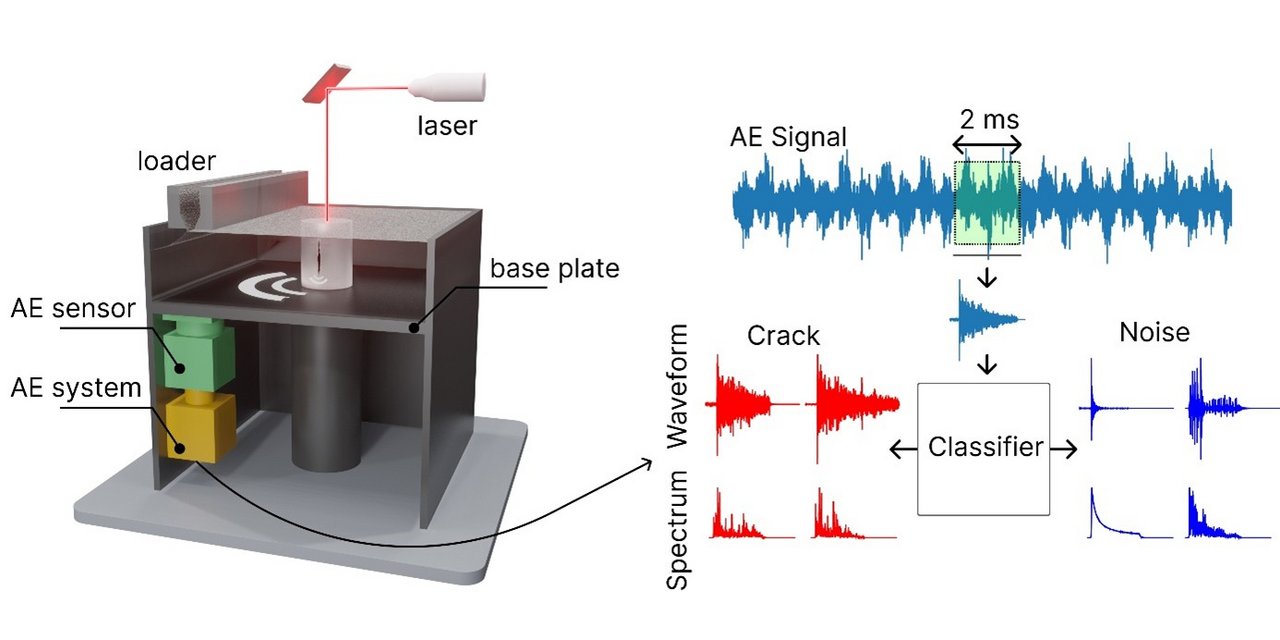
Contact: Dr. Konrad Kosiba
Machine learning (ML) offers considerable promise for advancing metal processing, such as additive manufacturing (AM). Metal AM can enable the fabrication of components with designed microstructures and hence engineered performance characteristics. By emulating complex correlations within process data, ML allows for the efficient optimization of processing parameters, improved defect prediction, and accelerated real time defect monitoring.
In close collaboration with the IFW group ML for materials science (Dr. Dmitry Chernyavsky, Dr. Denys Kononenko; Institute for Theoretical Solid State Physics), we specifically focus on leveraging ML in the context of laser powder bed fusion, which represents one of the most widely adopted and industrially relevant metal AM technologies. This LPBF process is inherently complex, because it involves interactions between laser parameters, powder characteristics, melt pool dynamics, and solidification behavior. All of those interactions critically impact the evolution of the microstructure, especially involving the formation of defects such as pores and cracks.
Our research aims to utilize ML for the identification of optimal LPBF processing parameters yielding dense material and for the development of advanced real time monitoring approaches with potential for the implementation into closed-loop control systems. Thereby we focus on two main aspects:
(1) Bayesian optimization (BO) frameworks for modelling process–structure–property relationships: Using BO to efficiently predict optimal LPBF parameters for the successful fabrication of high-density components from industrially relevant, but difficult to process alloys. BO is designed for accurately predicting optimal conditions despite the limited data and for multi-objective scenarios, thereby enabling digital materials design.
(2) ML-based real-time monitoring and defect detection: Developing algorithms that analyze sensor data in real time to detect defects, such as cracks or pores during LPBF fabrication. We focus on ML models, such as Autoencoders, for the development of automated defect monitoring systems based on acoustic emissions.


2025 - Cunliang Pan, Tijue Wang, Jiafeng Fan, Zhengyi Jin, Hao Luo, Juergen Czarske, Robert Kuschmierz, Xiaoqiang Li, Konrad Kosiba
Machine learning-assisted fabrication for CoCrNi-TiCx composite coatings: Process parameters, microstructure and properties
Ceramics International|Volume: 51|Pages 16354-16369
2024 - Denys Y. Kononenko, Dmitry Chernyavsky, Wayne E. King, Julia Kristin Hufenbach, Jeroen van den Brink, Konrad Kosiba
Designing materials by laser powder bed fusion with machine learning-driven bi-objective optimization
Journal of Materials Research and Technology|Volume: 30| Pages 6802-6811
2023 - Dmitry Chernyavsky, Denys Y. Kononenko, Jun Hee Han, Hwi Jun Kim, Jeroen van den Brink, Konrad Kosiba
Machine learning for additive manufacturing: Predicting materials characteristics and their uncertainty
Materials & Design|Volume: 227|111699
2023 - Denys Y. Kononenko, Viktoriia Nikonova, Mikhail Seleznev, Jeroen van den Brink, Dmitry Chernyavsky
An in situ crack detection approach in additive manufacturing based on acoustic emission and machine learning
Additive Manufacturing Letters|Volume: 5|100130
2021 - Da Seul Shin, Chi Hun Lee, Uta Kühn, Seung Chul Lee, Seong Jin Park, Holger Schwab, Sergio Scudino, Konrad Kosiba
Optimizing laser powder bed fusion of Ti-5Al-5V-5Mo-3Cr by artificial intelligence
Journal of Alloys and Compounds|Volume: 862|158018